Qawwali’s are simple performances, without a wide array of instruments or orchestra, etc. A chorus of claps modulates the underlying rhythm. Human anatomy limits the maximum beat that can be created by clapping. Hence, Qawwals use a table to get around this limitation and introduce faster beats in between the claps. A Harmonium is mostly ornamental, and audible when the singer reaches the low notes and during those stretched a’s (aaaaaaaa…) \
We can classify Qawwali’s into two broad categories. Now a trained singer or musician might dispute this and can go into lengths about the different structures in a Qawwali. However, I write this ode from the perspective of listeners, based on the wide opinion of ONE esteemed listener.
These categories are based on the way the audience involves itself in the Qawwali. One, when the audience is involved in the rhythm, the clapping, the vocals, the transitions. Two, when the audience is involved in the lyrics. Both need audience reaction, audience participation for a fulfilling performance, however the way they entice the reaction differentiates them.
Let’s look at the lyrics category first.
Some ground rules, the Qawwali ‘must’ (this cannot be emphasized enough), use a word or a phrase that is not a part of the normal spoken language. It must have a word you need to google to find the meaning. Such words are borrowed from cousins of the Hindi language, Urdu, Farsi, etc.
The second challenge is for the Qawwali is to have an overarching theme (usually heartbreak, divine love, etc), yet individual couplets or paragraphs must carry deep meaning emphasizing and reemphasizing the main theme.
It is not merely scratching to write on a rock, Qawwali is akin to retracing, again and again, chiseling, until you get an inscription.
Let’s see an example
Qawwali: Tu Bol Kaffara Kya Hoga written by Asim Raza
Devnagri Script Lyrics
तसकीन दिल की खातिर तुम बिछड़ते वक्त मुस्कुराते रहो वो जाने वाले दूर जात्ते हुए पलट के नज़र मिलाते रहो
दिल गलती कर बैठा है,गलती कर बैठा है दिल दिल गलती कर बैठा है,गलती कर बैठा है दिल। दिल गलती कर बैठा है तू बोल कफारा क्या होगा मेरे दिल की दिल से तौबा ,दिल से तौबा मेरे दिल की मेरे दिल की दिल से तौबा ,दिल से तौबा मेरे दिल की मेरे दिल की तौबा के दिल अब प्यार दोबारा ना होगा तू बोल कफारा कफारा बोल कफारा तू बोल कफारा कफारा बोल कफारा कफारा बोल वो यारा कफारा क्या होगा
हमने जुगनू जुगनू करके तेरे मिलन के दीप जलाये है हमने जुगनू जुगनू कर के तेरे मिलन के की दीप जलाये है अखियों में मोती भर भर के तेरे हिज़्र में हाथ उठाये है तेरे नाम के हर्फ़ की तस्बीह को सांसो के गले का हार किया दुनिया भूली सिर्फ हा सिर्फ तुझे ही प्यार किया
तुम्हे हम से बढ़ कर दुनिया,दुनिया तुम्हे हम से बढ़ कर तुम्हे हम से बढ़ कर दुनिया,दुनिया तुम्हे हम से बढ़ कर हमको तुम से बढ़ कर कोई जान से प्यारा ना होगा
तू बोल कफारा कफारा बोल कफारा तू बोल कफारा कफारा बोल कफारा कफारा बोल वो यारा कफारा क्या होगा
हमे थी गरज़ तुम से और तुम्हें बेगर्ज होना था तुम्हे ही लादवा होकर हमारा मर्ज़ होना था चलो हम फ़र्ज़ करते है के तुम से प्यार करते है मगर इस प्यार को भी किया हमी से फर्ज होना था
धड़कन धड़कन धरके धरके हम ने धड़कन धड़कन दिल तेरे दिल से जोर लिया आंखों ने आंखे पढ़ पढ़ के तुझे विरद बना के याद किया तुझे प्यार किया तो तू ही बता हमने क्या कोई जुर्म किया और जुर्म किया है तो भी बता ये जुर्म के जुर्म की क्या है सजा
तुम जित गए हम हारे तुम हारे और तुम जीते तुम जित गए हम हारे तुम हारे और तुम जीते तुम जीत गए हो लेकिन हम सा कोई हारा ना होगा
तू बोल कफारा कफारा बोल कफारा तू बोल कफारा कफारा बोल कफारा कफारा बोल वो यारा कफारा क्या होगा
English Script with Translation
Taskeen-e-dil ki khaatir tum
Bicharrte waqt muskuraate raho
O jaane wale door jaate huwe
Palat palat ke nazar milaate raho
For the sake of my heart’s comfort.
please keep smiling as we break apart
as you leave far away from me
turn around again and again, glance at my eyes again and again
Dil ghalati kar betha hai
Ghalati kar betha hai dil
Dil ghalati kar betha hai
Ghalati kar betha hai dil
Dil ghalati kar betha hai
Ghalati kar betha hai dil
Dil ghalati kar betha
My heart has made a mistake
A sin has been committed by my heart (3)
Tu bol kaffara kya hoga
Please tell me, what will be the penance for me
Mere dil ki dil se tauba
Dil se tauba mere dil ki
Mere dil ki dil se tauba
Dil se tauba mere dil ki
my heart bears apologies from my heart
heartfelt apologies from my heart (2)
Dil ki tauba, aye dil
Ab pyaar dobara na hoga
as I repent from my heart,
it promises not to fall in love again
Tu bol kaffara
Kaffara, bol kaffara
Tu bol kaffara
Kaffara, bol kaffara
Please tell me, what will be the penance for me(2)
Kaffara, bol na yaara
O yaara, bol kaffara kya hoga
Oh dear, Please tell me, what will be the penance for me
Ham ne jugnu jugnu kar ke
Tere milan ke deep jalaye hain
Ham ne jugnu jugnu kar ke
Tere milan ke deep jalaye hain
one by one I collected individual glow worms (hopes)
to light the lamps for your embrace (2)
Akhiyon mein moti bhar bhar ke
Tere hijr mein haath uthaye hain
I have cried and cried, with tears in my eyes
I have prayed and prayed in my separation from you
Tere naam ke harf ki tasbheeh ko
Saanson ke galay ka haar kiya
Duniya bhooli, aur sirf tujhe
Haan sirf tujhe hi pyaar kiya
I chanted your name again and again, creating a rosemary with beads of your name
wearing that rosemary in my each breath
the world passed me, as I lost touch with it
only to love you.
Tum jeet gaye hum haare
Hum haare aur tum jeete
Tum jeet gaye hum haare
Hum haare aur tum jeete
Your Victory was my loss
my losses were your wins (2)
Tum jeete hoo lekin
Humsa koi haara na hoga
You may have simply won
yet, no one is as great a loser as me
Mere dil ki dil se tauba
Dil se tauba mere dil ki
Dil ki tauba, aye dil
Ab pyaar dobara na hoga
Tu bol kaffara
Kaffara,bol
Kaffara,kaffara
Bol na yaara
O yaara, bol kaffara kya hoga
my heart bears apologies from my heart
heartfelt apologies from my heart (2)
as I repent from my heart,
it promises not to fall in love again
Please tell me, what will be the penance for me(2)
Oh dear, Please tell me, what will be the penance for me
Hamein thi gharz tum se
Aur tumhein begharz hona tha
Tumhein hi la dawaa hokar
Hamara marz hona tha
Chalo ham farz karte hain
Ke tum se pyaar karte hain
Magar is pyaar ko bhi kya
Hami pe farz hona tha
for me you became my life’s purpose
but you had to become disinterested in me
As incurable as you were
you had to become my disease
lets presume that
I had to fall in love with you
but why this love
became an obligation for me
Dharkan dharkan dharke
Dharke…
Ham ne dharkan dharkan kar ke
Dil tere dil se jorr liya
Aankhon ne ankhain parh parh ke
Tujhe vird bana ke yaad kiya
Tujhe pyaar kiya to tu hi bata
Ham ne kya koi jurm kiya
Aur jurm kiya hai to bhi bata
Yeh jurm ke jurm ki kya hai saza
with each heart beat
as I counted each beat of the heart
my heart got attached to your heart
as I read into your eyes
I memorised you as the verses of prayer
Yes I did love you, but can you tell me
did I commit any crime by doing so
and if it was my crime, then you only tell me
what is the punishment for my crimes
Tumhein ham se barh kar duniya
Duniya tumhein hamain se barh kar
Tumhein ham se barh kar duniya
Duniya tumhein hamain se barh kar
more than me this world is more important to you
this world is more valuable to you than me(2)
Ham ko tum se barh kar
Koi jaan se pyaara na hoga
but for me, nothing will be greater than you
nothing will be lovelier than you
Mere dil ki dil se tauba
Dil se tauba mere dil ki
Dil ki tauba, aye dil
Ab pyaar dobara na hoga
my heart bears apologies from my heart
heartfelt apologies from my heart (2)
as I repent from my heart,
it promises not to fall in love again
Tu bol kaffara
Kaffara,bol
Kaffara,kaffara
Bol na yaara
O yaara, bol kaffara kya hoga
Please tell me, what will be the penance for me(2)
Oh dear, Please tell me, what will be the penance for me
These lyrics pass our first check with words like kaffara (penance), takseen-e-dil (heat’s comfort), tasbeeh (rosemary), vird (repeated, prayer). The rest of the words will sound familiar for a typical hindi speaker, yet some oriental spices are embedded in this wordplay. Like easter eggs in a movie, these are for the nerds of the art form, like the word gharz in the lines Hamein thi gharz tum se, Aur tumhein begharz hona tha. ‘Gharz’ here can be easily interpreted at the hindi ‘Garaj’ meaning ‘Need’. And the lines will still make sense as in ‘You were my need’. Yet, the textbook meaning of the word ‘Gharz‘ is ‘Purpose’. This transforms the line to ‘You were my purpose, my aim, my life’s purpose’. Thus adding more gravity and weight to the line, moving beyond a simple need, to a necessity.
Talking of weight, the lyrics are laden with superlatives. You cannot be a simple loser, there has to be no greater a loser in this world than you (Humsa koi haara na hoga). These are lines that carry the Qawwali from the performer to the audience, these are the lines that entice response from the audience, and these are the lines that create anticipation for the audience.
We can illustrate this with a simple example. The same lyrics above, first sung beautifully by the singer Sehar Gul Khan
The song is good to hear but now listen to a version sung by a different singer, a male singer. However more than the gender difference, see how the song becomes more enjoyable to view by the reactions of the audience, the specific lines the audience wants to hear and the way they hold meaning for them, in a poetic way we can say that the lines ‘pierce their hearts’
Thus Qawwali becomes a free form, as it is never beholden to the original performer, it is adapted, rehashed, re-energised by the new performer, a newer audience. The audience is what drives it.
Another example is ‘Mere Rashke Qamar’. (Beauty which makes the moon envious ). This Qawwali/song was in relative obscurity, only accessible to the hardcore fandom of the art. However, it exploded when a girl, a drunk girl interacted with the song and made it viral. It became so popular that ultimately Bollywood had to step in to destroy the song by making it part of a movie. (Baadshaho)
Since the virtue is locked in the lyrics the Qawwali’s of the first kind tend to be understandably long. Because if audience involvement is in the lines, there better be more lines. A typical song would have ended by the second time ‘Kaffara’ appears and the whole ‘gharz’ section would be absent, but in such a lyrical Qawwali they are essential.
But all Qawwalis need not be too long. This brings us to the second category of Qawwali. They do not deviate from the core principle of audience enticement, involvement. They achieve the same effect by engaging the audience in the rhythm of the vocals. You need to create an atmosphere via the vocals, this is not a one-man job, you need a group of vocalists around the main singer, equally accomplished in their own way
Let’s illustrate this with an example
Chaap Tilak written by Amir Khusro
Devnagri
छाप तिलक सब छीनी रे मोसे नैना मिलाइके बात अगम कह दीनी रे मोसे नैना मिलाइके प्रेम भटी का मधवा पिलाइके मतवाली कर लीनी रे मोसे नैना मिलाइके गोरी गोरी बईयाँ, हरी हरी चूड़ियाँ बईयाँ पकड़ हर लीनी रे मोसे नैना मिलाइके बल बल जाऊं मैं तोरे रंग रजवा अपनी सी रंग दीनी रे मोसे नैना मिलाइके ख़ुसरो निजाम के बल बल जाए मोहे सुहागन कीनी रे मोसे नैना मिलाइके बात अजब कह दीनी रे मोसे नैना मिलाइके
English Script and Translation
Chaāp tilak sab chhīnī re mose nainā milāike Bāt agam keh dīnī re mose nainā milāike
You’ve taken away my look (chaap), my identity (tilak), and everything(sub) from me by looking into my eyes. You’ve said the unsaid (adham = secrets of divine nature), just by a glance.
Prem bhaṭī kā madhvā pilāike Matvālī kar līnī re mose nainā milāike
By making me drink the love of devotion. You’ve intoxicated me by just a glance
Gorī gorī baīyān, harī harī chuṛiyān Baīyān pakaṛ har līnī re mose nainā milāike
My fair, delicate wrists with green bangles on them, Have been taken off by you with just a glance.
Bal bal jāūn main tore rang rajvā Apnī sī rang dinī re mose nainā milāike
I give my life to you, Oh my cloth-dyer, You’ve dyed me like yourself, by just a glance.
Khusro nizaam ke bal bal jaiye Mohe suhāgan kīnī re mose nainā milāike
I give my whole life to you Oh, Nizam, You’ve made me your bride, by just a glance.
Bāt ajab keh dīnī re mose nainā milāike
You’ve said the wonder, by just a glance.
A relatively short poem, yet see how it is brought to life by the performance. And in the performance, it is not just the vocals, the expressions, the hand gestures, all contribute in carrying the performance to the audience.
The fundamentals are the same, however, the variations are important. This brings us to an interesting question.
Can you really become a fan of a Qawwali by just listening to it, rather by just listening to the audio?
maybe if you have a classical ear, but for us normal people, it is about the visual interaction with the rhythm, then maybe later we draw upon our memory to enjoy the performance on audio. However, minus the initial visual cues, it might prove daunting.
The larger point here is about simplicity. The art form is deceptively simple, claps, something to bang on like a tabla, the harmonium is practically optional for creating a base rhythm, the only word to describe the setup is ‘simple’. I mean how complex can clapping get. Yet, they find resonance with the public. Without an orchestra, conductor, symphony, Yanni, Dolby sound, etc.
This principle of simplicity transcends the art form. For example, why are the ‘kirtans’ and ‘kakad aartis’ (early morning temple recitations) so popular. Taalu replaces the Tabla, the rest of the instruments are optional as you have the claps. Simple and hence open to participation. Contrast this with the classical raaga, A Dhrupad is good to hear, but really can you open your throat and chug along!
Whereas anybody who understands the rhythm of a clap can plug into the chorus, and if the raag becomes too heavy, just clap along, or raise your hands to say ‘wah-wah’
This might be the reason why 90’s Hindi film music was so popular, it was so simple, that anyone could hymn a few lines here and there.
Thus we can title this prose as
A Simple Ode to the Qawwali

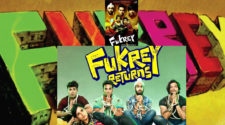


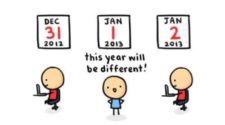
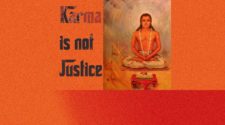
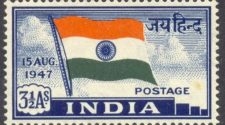



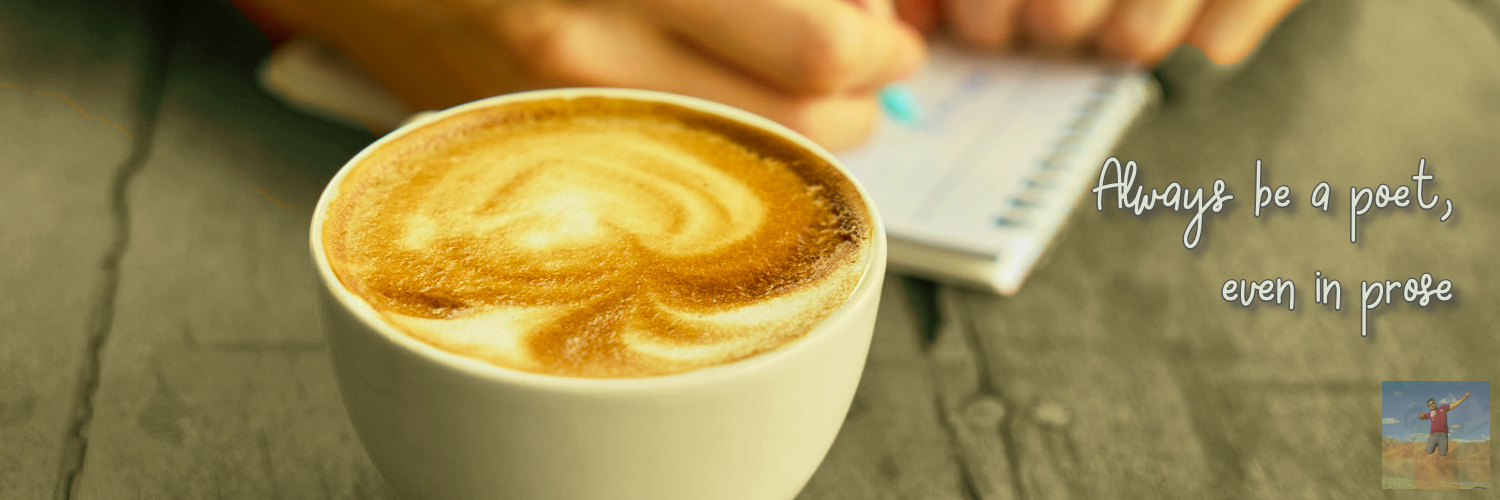
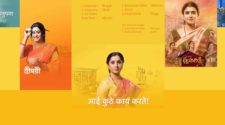
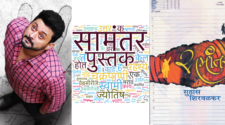
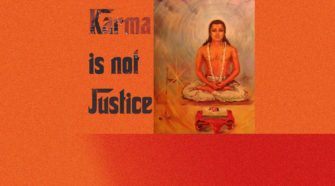
When and where do you even find time to make these studies ? Thats personally very frustrating 😡
You avoided the religious angle and how thus art is reduced to limited to certain sections of India. Pakistan still has qawwali in main stream. Raskhe Qamar is quite a hit one performed by Nusrat Fateh Ali, but i guess in UK.
Anywho barring the dictionary challenge that qawwalis throw at you, the simplicity of claps, alaps, tabla -harmonium are transcendetal.